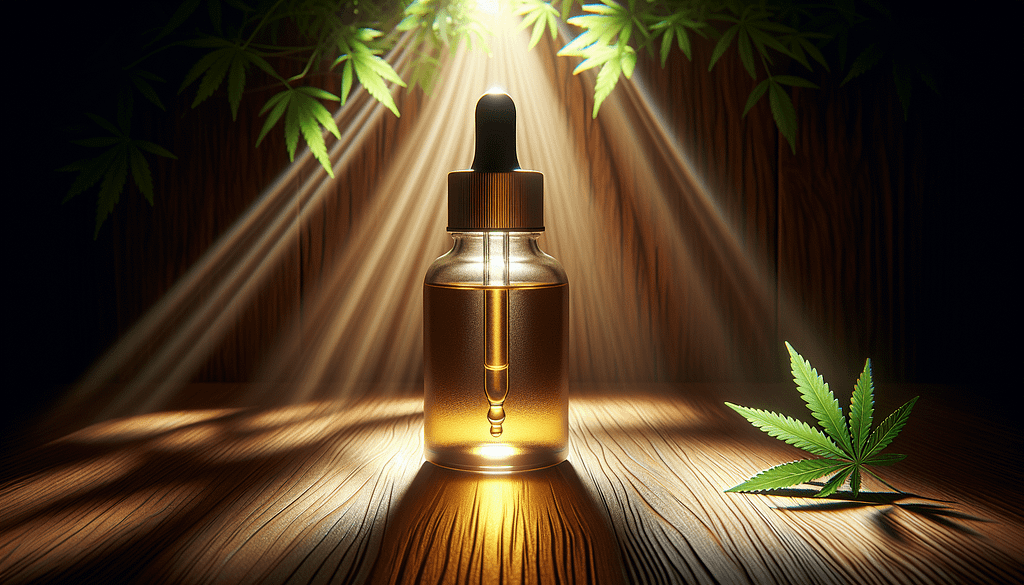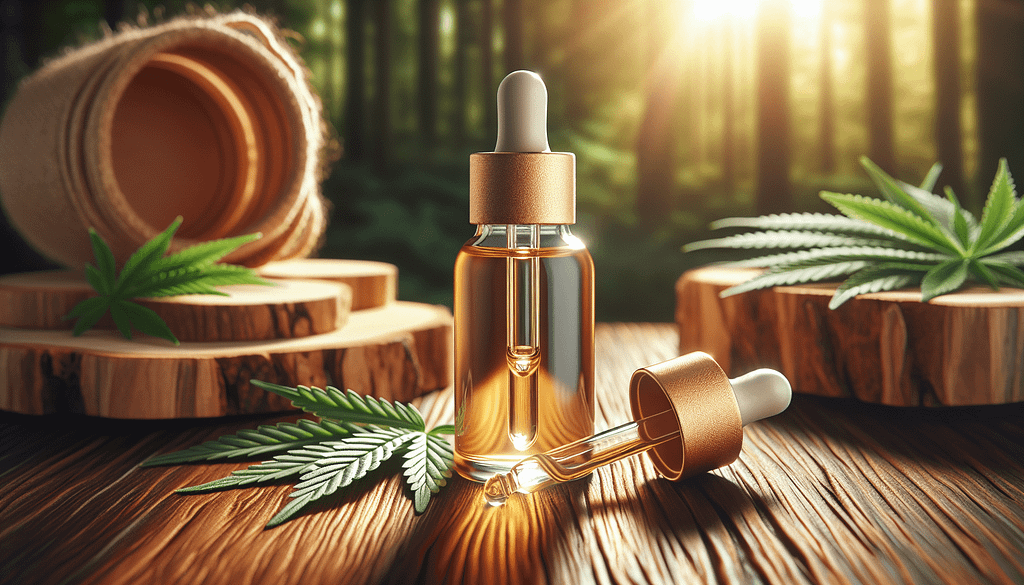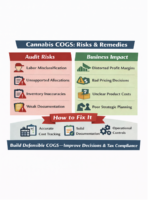As an Amazon Associate I earn from qualifying purchases.
Discover how to select high-quality CBD products with confidence. Learn about types, sources, extraction methods, and more to make informed choices. Read our expert guide.
How to Choose High-Quality CBD Products
CBD products have gained immense popularity, and for good reason. You’ve probably heard about their potential benefits, from alleviating pain to reducing anxiety. However, with the market flooded with countless options, choosing high-quality CBD products can be overwhelming. This guide will help you navigate through the choices and make informed decisions.
Understanding CBD
CBD, short for cannabidiol, is a compound found in the cannabis plant. Unlike THC, another well-known compound from the same plant, CBD does not have psychoactive effects. This means you can reap the benefits of CBD without experiencing a “high.” It’s crucial to understand the basics of CBD before diving into the selection process.
Different Types of CBD
CBD products come in various forms, and it’s essential to know the differences:
- Full-Spectrum CBD: Contains all the cannabinoids, including THC (in very low amounts).
- Broad-Spectrum CBD: Contains multiple cannabinoids but no THC.
- CBD Isolate: Pure CBD with no other cannabinoids.
Each type has its own pros and cons, which can affect your decision depending on what you’re looking to achieve with CBD.
Source of the Hemp
The quality of the CBD product you choose is heavily influenced by the quality of the hemp used. High-quality hemp leads to high-quality CBD.
U.S. Grown Hemp
Hemp grown in the U.S. is generally held to stringent standards, making it some of the best in the world. The U.S. Farm Bill of 2018 set the legal definition of hemp, ensuring it contains less than 0.3% THC. This regulation helps to maintain high quality and safety standards.
Organic and Non-GMO
Look for hemp that is organic and non-GMO. Organic farming practices reduce the risk of chemical contaminants such as pesticides and herbicides, which can compromise the quality of the CBD product. Non-GMO hemp ensures that no genetically modified organisms are involved, which is essential for many health-conscious consumers.
Extraction Methods
The manner in which CBD is extracted from the hemp plant plays a vital role in its quality.
CO2 Extraction
CO2 extraction is considered the gold standard in the hemp industry. This method uses carbon dioxide to extract CBD and other beneficial compounds, maintaining their purity and potency. Though it can be more expensive, products extracted through this method are generally superior.
Solvent Extraction
While less costly, solvent extraction involves using chemicals like ethanol or butane, which can leave behind harmful residues if not done correctly. If you opt for a product extracted through solvents, ensure that it has been thoroughly tested for residual chemicals.

Third-Party Lab Testing
Before you make a purchase, it’s imperative to look for products that have undergone third-party lab testing. These tests confirm the product’s quality, purity, and potency, providing an unbiased assessment.
Certificates of Analysis (COAs)
A COA will provide detailed information about the CBD content, THC levels, and presence of any contaminants such as heavy metals or pesticides. Make sure the COA is accessible and comes from a reputable lab. This transparency is a key indicator of a high-quality product.
Red Flags
Be cautious of products that don’t offer a COA or have vague information about their testing processes. Lack of transparency often signals subpar quality and potential health risks.
Potency and Dosage
The potency of a CBD product refers to the concentration of CBD in a given amount, usually expressed in milligrams (mg).
Understanding Potency Levels
- Low Potency: 5–15 mg CBD per serving
- Medium Potency: 16–30 mg CBD per serving
- High Potency: 31–50 mg CBD per serving
Your choice will depend on your specific needs. Beginners might want to start with a low potency to gauge their body’s reaction.
Dosage Guidelines
The ideal dosage varies from person to person. Factors like body weight, the severity of the condition, and personal tolerance play significant roles. It’s generally advisable to start low and gradually increase until you find the optimum dosage for your needs.
Product Forms
CBD comes in various forms, each offering its unique advantages and disadvantages.
Tinctures and Oils
Perhaps the most popular form, tinctures and oils offer flexibility with dosing. You can take them sublingually (under the tongue) for quicker absorption.
Edibles
Edibles such as gummies make dosage easy and are an excellent option if you dislike the natural taste of CBD oil. However, they take longer to kick in as they have to pass through the digestive system.
Capsules
Capsules provide a pre-measured dose, making them convenient. Like edibles, they also take longer to take effect.
Topicals
If you’re looking to treat localized pain or skin conditions, topicals such as creams and balms can be applied directly to the affected area.
Vapes
Vaping is the fastest way to feel the effects of CBD, but it may not be suitable for everyone, especially those with lung issues.

Ingredients List
A high-quality CBD product will have a transparent and straightforward ingredients list. Here’s what to look for:
Natural and Organic Ingredients
Opt for products that use natural and organic ingredients. Avoid those with artificial additives, preservatives, or fillers that can diminish the product’s quality and effectiveness.
Carrier Oils
Carrier oils like MCT (medium-chain triglycerides) oil, hemp seed oil, and olive oil are commonly used in CBD products. These oils can enhance the absorption and effectiveness of CBD. Ensure the carrier oil used is of high quality.
Brand Reputation
The reputation of the brand you choose can significantly affect the quality of the product.
Customer Reviews
Look for customer reviews and testimonials. Real-life experiences can provide valuable insights into the product’s effectiveness and any potential side effects.
Industry Standing
Brands that have been in the market for a while and are recognized for their quality products usually adhere to higher standards. Check for any industry awards or certifications that validate the brand’s quality and ethical practices.
Price vs. Quality
While it might be tempting to go for cheaper options, remember that high-quality CBD products come at a cost. Here’s how you can assess if the price you’re paying matches the quality you’re getting.
Assessing Value
Compare the price per mg of CBD across different products. Sometimes, a higher upfront cost can actually be more economical in the long run if the product is more potent and effective.
Beware of Bargains
If a deal seems too good to be true, it probably is. Extremely cheap products may cut corners, compromising safety and quality.
Legal Considerations
The legality of CBD products can vary by location, making it essential to know the laws in your area.
Federal and State Laws
In the U.S., CBD derived from hemp with less than 0.3% THC is legal at the federal level, thanks to the 2018 Farm Bill. However, state laws can differ, so it’s crucial to understand the regulations in your jurisdiction.
Purchase from Licensed Sellers
Buying from licensed and reputable sellers ensures that you’re getting products that comply with legal standards and quality controls.
Storage and Shelf Life
Proper storage practices can extend the shelf life and effectiveness of your CBD products.
Optimal Storage Conditions
Store your CBD products in a cool, dark place away from direct sunlight. Exposure to heat and light can degrade the cannabinoids, reducing the product’s potency.
Expiry Date
Check for an expiry date on the product packaging. Using the product within its shelf life ensures you get the maximum benefits without any risks.
Common Misconceptions About CBD
You’ve probably heard myths and misconceptions about CBD that may confuse you in making informed decisions. Let’s debunk some of these:
CBD Gets You High
Unlike THC, CBD is non-psychoactive and won’t make you feel high.
All CBD Products Are the Same
Not all CBD products are created equal. Factors such as the source of hemp, extraction methods, and additional ingredients can significantly affect the quality and efficacy.
Consulting Healthcare Providers
Before starting any new supplement, including CBD, consult your healthcare provider.
Discuss Potential Interactions
CBD can interact with other medications you may be taking. Discussing it with your healthcare provider ensures that you safely incorporate CBD into your routine.
Personal Health Conditions
Your personal health history and conditions can affect how you should use CBD, so professional guidance can help tailor the right dosage and form for you.
Final Thoughts
Choosing high-quality CBD products involves a mix of understanding the types of CBD, knowing the origin of the hemp, ensuring proper extraction methods, verifying third-party lab results, and considering the brand’s reputation, among other factors. This comprehensive guide aims to equip you with the knowledge you need to make informed decisions and reap the full benefits of CBD.
If you found this article helpful, please clap, leave a comment, and subscribe to my Medium newsletter for more updates on the world of CBD and other wellness topics. Your support helps me continue to provide valuable, well-researched content. Thank you!
Disclosure: This story incorporates AI assistance for content creation.
Amazon and the Amazon logo are trademarks of Amazon.com, Inc, or its affiliates.

